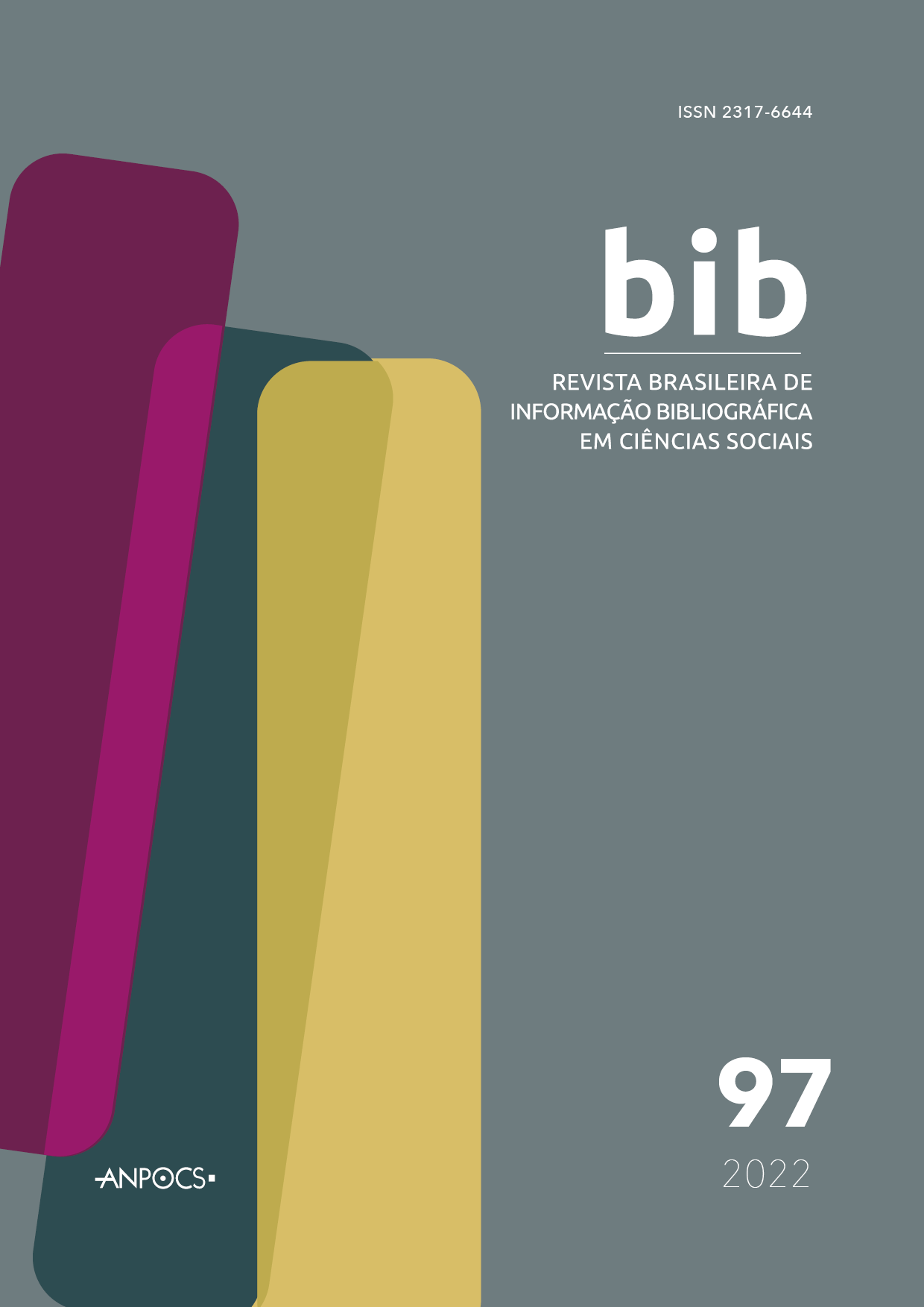O Movimento das Políticas Públicas Baseadas em Evidências
uma radiografia crítica
Palabras clave:
Políticas públicas baseadas em evidências, Atores e instituições do Movimento global das PPBE, Difusão de políticas públicas, comunidades epistêmicas, fake newsResumen
As políticas públicas baseadas em evidências (PPBE) são aquelas cuja formulação e implementação são pautadas por dados e informações produzidos de maneira rigorosa e sistemática, preferencialmente segundo padrões chancelados pela comunidade
científica. Nas últimas décadas, a demanda e a oferta de PPBE cresceram tanto que hoje se reconhece a existência de um “Movimento das PPBE” de alcance global. Partindo do reconhecimento que este Movimento das PPBE ainda é incipiente no Brasil, o presente artigo tem os seguintes objetivos: (a) explicar as origens e a propagação deste Movimento pelo mundo, destacando causas gerais e específicas; (b) analisar o papel dos distintos tipos de instituições que têm contribuído para a difusão desta agenda; e (c) sintetizar as principais críticas endereçadas ao Movimento e discutir as suas limitações e promessas não cumpridas.
Descargas
Citas
BANKS, G.Evidence-based policy making: What is it? How do we get it? (ANU Public Lecture Series, 4 february), Productivity Comission, Camberra, 2009.
BARON, J. A “brief history of evidence-based policy”. The Annals of the American Academy of Political and Social Science. 678, 1: 40-50, 2018.
BOTTERILL, LC. “Evidence-Based Policy”. Oxford Research Encyclopedias. Online publication date: Apr 2017.
BRACHO, T. “Políticas basadas en evidencia. La política pública como acción informada e objeto de investigación”. In: MERINO, M. & CEJUDO, G.M. (Eds.). Problemas, decisions y soluciones. México D.F.: FCE/CIDE, 2010.
CAIRNEY, P. “Three habits of successful policy entrepreneurs”. Policy & Politics, 46, 2:199-215, 2018.
________. The politics of evidence-based policy making. London: Palgrave Macmillan, 2016.
D’ANCONA, M. Pós-Verdade: a nova guerra contra os fatos em tempos de fake news. Barueri: Faro Editorial, 2018.
DAVIES, H; NUTLEY, S.M. & SMITH, P.C. “Introducing evidence-based policy and practice in public services”. In: DAVIES, et al (Eds.). What works? Evidence-based policy and practice in public services. Bristol: Policy Press, 2000.
FARIA, C.A.P. “A política da avaliação de políticas públicas”. Revista Brasileira de Ciências Sociais, 20, 59: 97-110, 2005.
FARIA, C.A.P.; SANCHES, A.E. “Mapeamento e caracterização do Movimento das Políticas Públicas Baseadas em Evidências no Brasil”. In: KOGA, N et al. O uso e não uso de evidências em políticas públicas no Brasil. Brasília: IPEA, 2022 [no prelo].
GUAY, J. “Evidence-based policymaking: is there room for science in politics?” apolitical.com, 2018.
HEAD, B.W. “Three lenses of evidence-based policy”. The Australian Journal of Public Administration, 67, 1: 1-11, 2008.
______. “Reconsidering evidence- based policy: key issues and challenges”. Policy and Society, 29, 2: 77-94, 2010.
KLEIN, R. “From evidence-based medicine to evidence-based policy?” Journal of Health Services Research and Policy, 5, 2: 65-66. 2000.
LAPA, TG et al. “Uma breve história da medicina baseada em evidências”. Journal of Evidence-Based Healthcare, 1, 2: 125-130, 2019.
MADER, P et al. 2019 Nobel Prize reveals the poverty of economics. Brighton, IDS, 17 October 2019.
MARSTON, G & WATTS, R. “Tampering with the evidence: a critical appraisal of evidence-based policy-making”. The Drawing Board: an Australian Review of Public Affairs, 3,3: 143-163, 2003.
MONAGHAN, M. Evidence versus politics. Exploiting research in UK drug policy making? Bristol: The Policy Press, 2011.
PARKHURST, J. The politics of evidence: from evidence-based policy to the good governance of evidence. New York: Routledge, 2017.
PARSONS, W. “From muddling through to muddling up: Evidence based policy making and the modernization of British Government”. Public Policy and Administration, 17, 3: 43-60, 2002.
PAWSON, R. “Evidence-based policy: in search of a method”. Evaluation, 8, 2: 157-181, 2002a.
____. “Evidence-based policy: The promise of realist synthesis”. Evaluation, 8, 3: p.340-358, 2002b.
PERLMAN, R.L. “For safety or profit? How Science serves the strategic interests of private actors”. American Journal of Political Science, 64, 2: 293-308, 2020.
SALTELLI, A & GIAMPIETRO, M. “What is wrong with evidence based policy, and how can it be improved?” Futures, 91, 1: 62-71, 2017.
SANDERSON, I. “Evaluation, policy learning and evidence-based policy making”. Public Administration, 80, 1: 1-22, 2002.
____. “Is it ‘what works’ that matters? Evaluation and evidence-based policy-making”. Research Papers in Education, 18, 4: 331-345, 2003.
SANDIM, T.L; MACHADO, D.A. “O paradigma das políticas públicas baseadas em evidências na gestão pública brasileira: uma análise das publicações acadêmicas”. Boletim de Análise Político-Institucional, 24, 2020.
SOLESBURY, W. “Evidence based policy: Whence it came and where it’s going. ESRC UK Centre for Evidence Based Policy and Practice”. Working Paper, 1, 2001.
SULLIVAN, J.X. “The Role of Nonprofits in Designing and Implementing Evidence-Based Programs”. The ANNALS of the American Academy of Political and Social Science, 678, 1: 155-163, 2018.
SUR, R.L.; DAHM, P. “History of evidence-based medicine”. Indian Journal of Urology, 27, 4: 487-489, 2011.
WHAT WORKS NETWORK. The What Works Network. Five years on. 2018.
YOUNG, K et al. “Social science and the evidence-based policy movement”. Social policy and society, 1, 3:.215-224, 2002.





